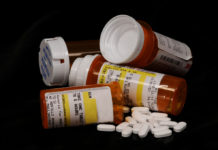provide critical efforts saving loved ones from falling victim to the overdose epidemic and that these intervention strategies should be incorporated into all efforts to increase naloxone and overdose education in Massachusetts.
“In Massachusetts, we have been fortunate to have significant support from the state for increased access to naloxone,” Bagley said. “They have been ahead of the curve when it comes to increasing this access.”
Bagley also emphasized the need to continue exploring methods that can prevent overdose-related deaths. “As we continue to talk about the impact that the opioid overdose epidemic has had on our country, I think that it’s important to remember that there are family members and other loved ones who are affected,” she said. “It’s clear that we need to continue to come up with new ways to prevent deaths. Families may be an overlooked ally.”















